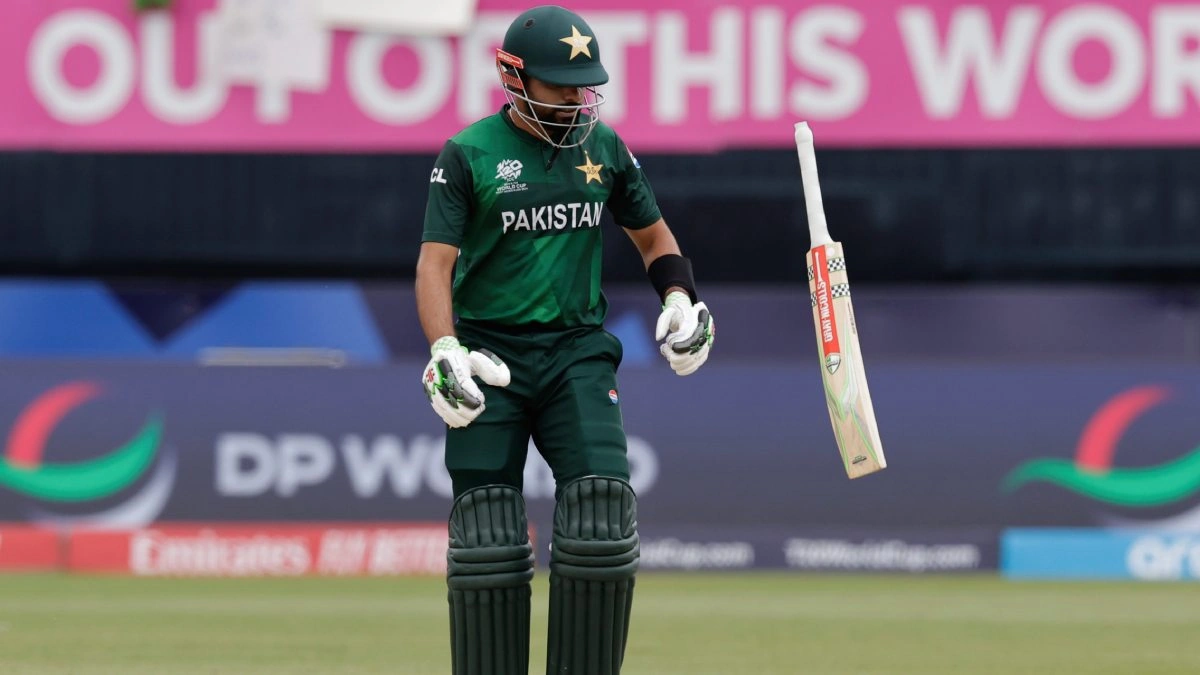Oof. That’s a headline that stings, doesn’t it? We all expected fireworks when Babar Azam returned to the T20I scene, especially with the 2026 World Cup looming. But a duck? In a qualifier? Let’s be honest, it wasn’t the script anyone was hoping for. Here’s the thing: one bad inning doesn’t define a career, but it does raise some serious questions.
The Weight of Expectations | More Than Just a Number

Babar Azam isn’t just any cricketer; he’s a symbol. He carries the hopes of a nation on his shoulders, and every move he makes is dissected under a microscope. His T20I comeback was touted as a potential game-changer for Pakistan. So, when he walked back to the pavilion without scoring, it felt like a collective groan rippled across the country. But, why does this single dismissal carry so much weight? It’s not just about the runs; it’s about the perceived pressure and his ability to handle it on the biggest stage.
And let’s consider the context: A World Cup qualifier isn’t the same as a friendly match. The stakes are higher, the pressure is immense, and the opposition is hungry to prove themselves. Did this heightened environment contribute to the flop? Perhaps. Did the team overly rely on his comeback? Absolutely. This is what makes the situation more intricate. It’s not just his failure, but it’s also the failure of the team to adjust when their key player doesn’t perform.
Decoding the Duck | What Went Wrong?
Okay, let’s get tactical. A duck isn’t always about a lack of skill. Sometimes it’s sheer bad luck, a brilliant delivery, or a momentary lapse in concentration. Maybe it was a peach of a ball that would have gotten anyone out. Maybe his mind was somewhere else.Cricket, after all, is a game of inches and split-second decisions. But let’s be real; the fans want more than excuses. They want to see adaptability and resilience.
One of the common mistakes I see batters make is overthinking their approach, especially in high-pressure situations. They try to be too perfect, too calculated, and they end up losing their natural flow. Could that have been the case with Babar? It’s possible. He is human, after all. Plus, a lot has changed since he last played this format.
T20 dynamics have shifted dramatically. The game has become even more aggressive, and batsmen need to be ready to attack from ball one. Did Babar adapt quickly enough? The scoreboard says no.
The Road Ahead | Can Babar Bounce Back?
Here’s where it gets interesting. This setback, embarrassing as it might be, could be a turning point. Great players aren’t defined by their failures but by how they respond to them. Babar’s T20I career isn’t over; it’s merely paused. The 2026 World Cup is still a ways off, and he has plenty of time to iron out the wrinkles in his game. The question is, how will he use this experience? Will he let it crush him, or will he use it as fuel to come back stronger?
What fascinates me is the psychological aspect. How does a player with his stature deal with such intense scrutiny? How does he block out the noise and focus on the task at hand? That’s the real test of a champion. We have seen this before. Consider the example of Virat Kohli. He also went through a lean patch and then came back stronger. Lessons can be learned, and adjustments can be made.
Beyond the Individual | A Wake-Up Call for Pakistan?
Babar’s failure also shines a light on the larger issues within the Pakistan team. Are they too reliant on individual brilliance? Do they lack a cohesive strategy? One thing is clear: relying solely on Babar Azam’s performance is a risky game plan. They need to build a more resilient and adaptable team, one that can thrive even when their star player has an off day.
Pakistan’s T20 squad has some soul-searching to do. They need to reassess their approach, identify their weaknesses, and develop a strategy that doesn’t solely depend on one player. Because, let’s be honest, that’s a recipe for disaster. This is also the time to give chance to new faces, who can come in without pressure. The goal should be to create a team that’s greater than the sum of its parts. This is something that should be kept in mind.
The Final Word | Perspective is Key
So, Babar got a duck. It’s not the end of the world. It’s a setback, yes, but it’s also an opportunity. An opportunity for him to prove his mettle, for the team to learn and grow, and for the fans to show their unwavering support. Let’s not write him off just yet. After all, cricket is a funny game, and anything can happen. This is what makes it so exciting.
FAQ
What if Babar continues to struggle?
It’s crucial to remember that even the best players have slumps. If Babar’s struggles persist, the team management might need to explore different batting orders or strategies to alleviate the pressure on him.
Is it time for Pakistan to find a new captain?
That’s a loaded question! While leadership changes are sometimes necessary, it’s important to give Babar time to work through his challenges. Knee-jerk reactions rarely solve long-term problems.
How can Pakistan improve its T20I performance?
By fostering a more adaptable and resilient team culture, focusing on consistent performance across the board, and developing a clear and well-defined strategy.
Will this affect Babar’s chances in the 2026 World Cup?
Not necessarily. There’s plenty of time between now and then. It’s all about how he uses this experience to improve his game and lead the team.
What’s the key takeaway from this situation?
That one bad innings doesn’t define a player or a team. It’s how they respond to adversity that truly matters.
Should I lose all hope for Pakistan’s chances in future tournaments?
Absolutely not! Cricket is unpredictable, and Pakistan has a history of surprising everyone. Stay positive and support your team!

I’m Vishal Ojha, a passionate blogger, content writer, and web designer with over four years of experience. I have a deep love for sports, especially cricket, and enjoy sharing the latest updates, insights, and analyses from the world of athletics. Every article I publish is carefully researched and fact-checked, ensuring readers get accurate and engaging sports content they can trust.



